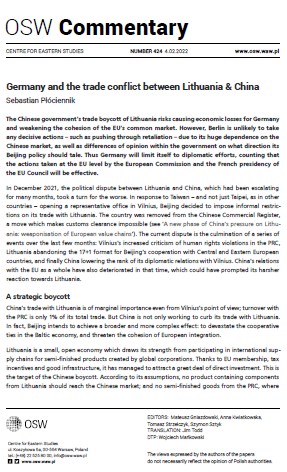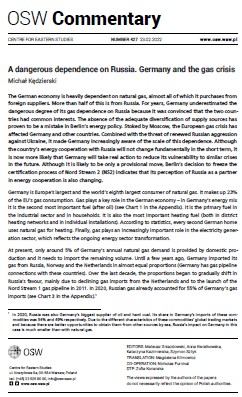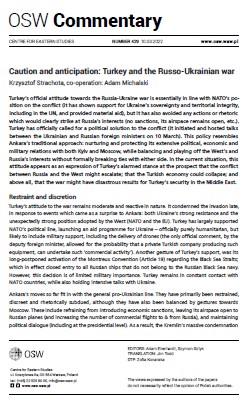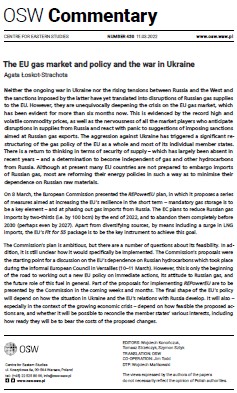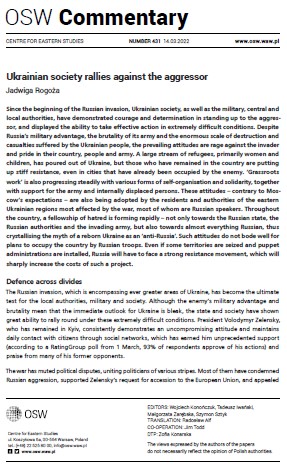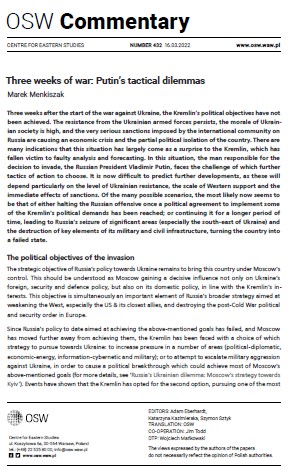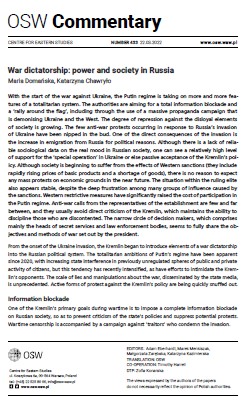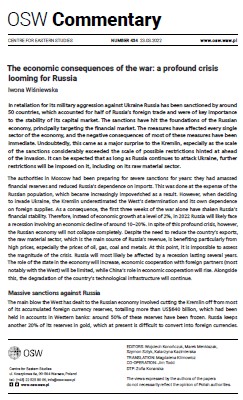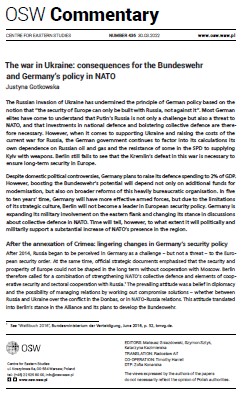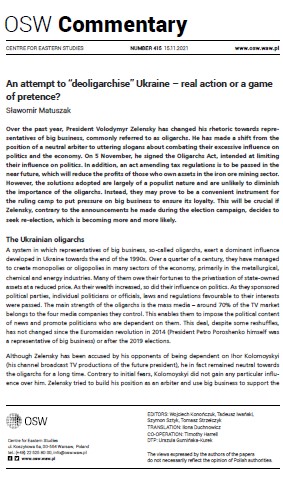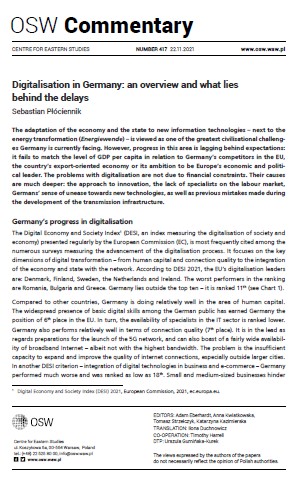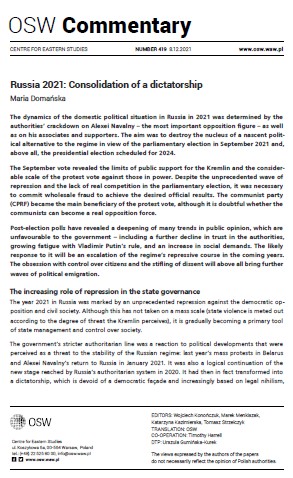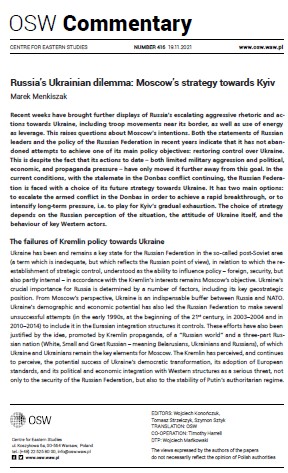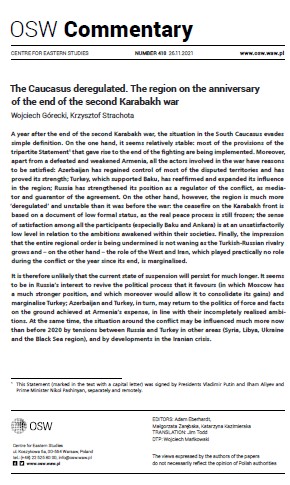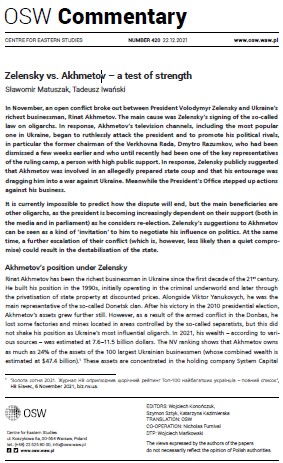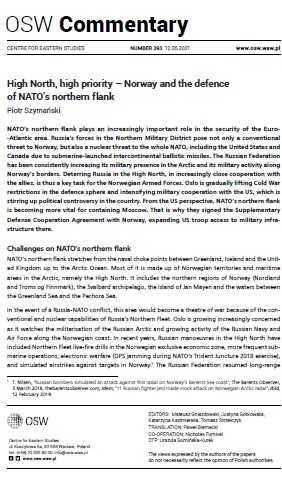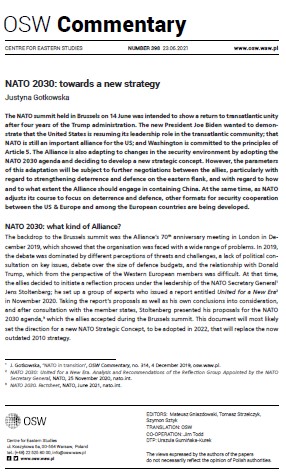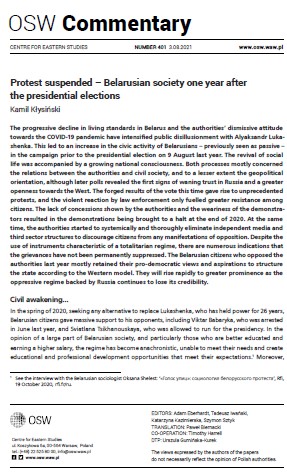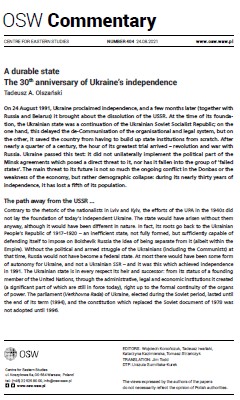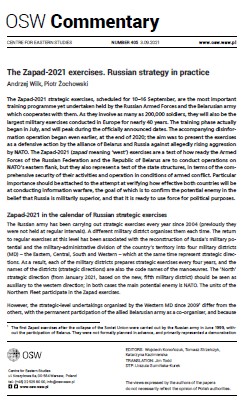Ukrainian society rallies against the aggressor
Author(s): Jadwiga Rogoża / Language(s): English
Keywords: Russian invasion against Ukraine; Ukrainian society; migration;
Since the beginning of the Russian invasion, Ukrainian society, as well as the military, central and local authorities, have demonstrated courage and determination in standing up to the aggressor, and displayed the ability to take effective action in extremely difficult conditions. Despite Russia’s military advantage, the brutality of its army and the enormous scale of destruction and casualties suffered by the Ukrainian people, the prevailing attitudes are rage against the invader and pride in their country, people and army. A large stream of refugees, primarily women and children, has poured out of Ukraine, but those who have remained in the country are putting up stiff resistance, even in cities that have already been occupied by the enemy. ‘Grassroots work’ is also progressing steadily with various forms of self-organisation and solidarity, together with support for the army and internally displaced persons. These attitudes – contrary to Moscow’s expectations – are also being adopted by the residents and authorities of the eastern Ukrainian regions most affected by the war, most of whom are Russian speakers. Throughout the country, a fellowship of hatred is forming rapidly – not only towards the Russian state, the Russian authorities and the invading army, but also towards almost everything Russian, thus crystallizing the myth of a reborn Ukraine as an ‘anti-Russia’. Such attitudes do not bode well for plans to occupy the country by Russian troops. Even if some territories are seized and puppet administrations are installed, Russia will have to face a strong resistance movement, which will sharply increase the costs of such a project.
More...
